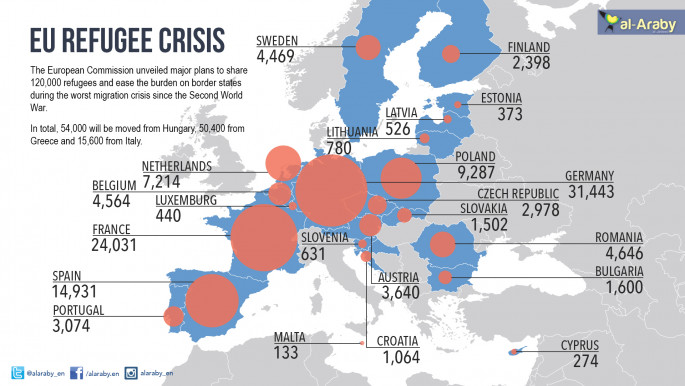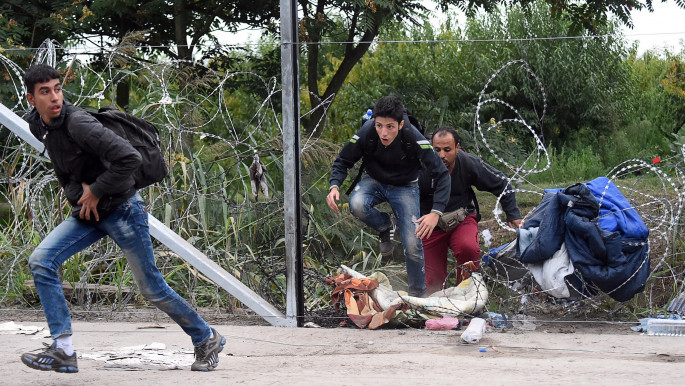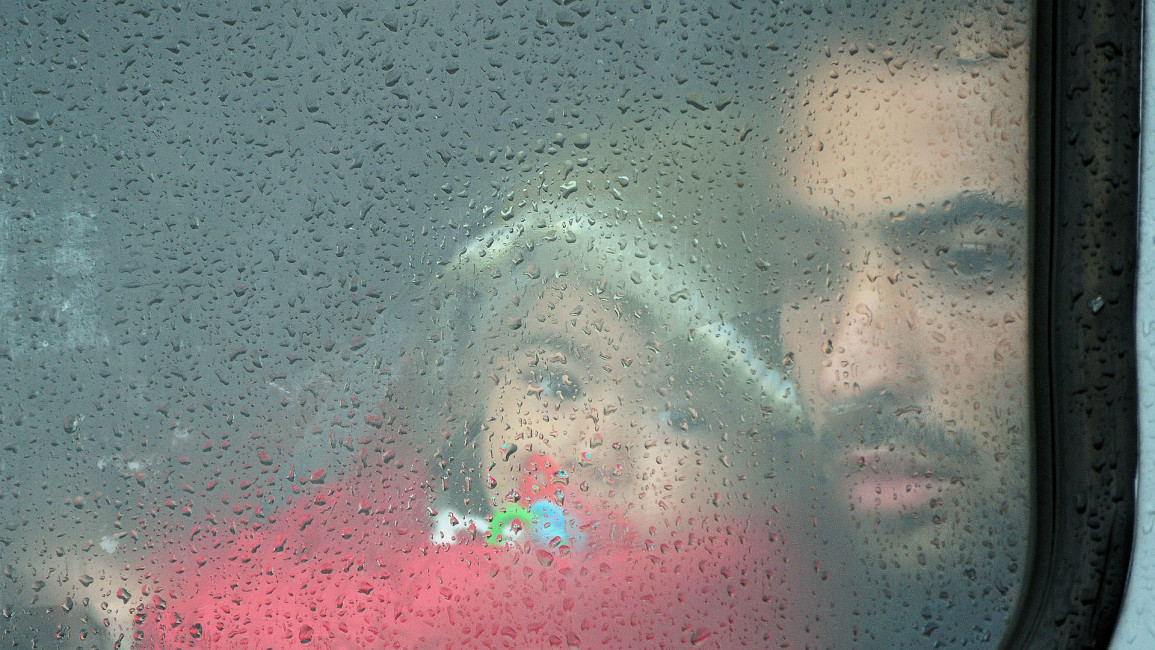EU states witness huge surge in migrants
A record 5,000 migrants have arrived at Serbia's border with Hungary over the past 24 hours, a television report said on Thursday.
Some 3,000 of them have already entered into Hungary, the state RTS television said. Most of the migrants are moving through Hungary on their way to Germany and other northern countries where they hope to win asylum.
Around 450,000 refugees have arrived in Germany so far this year, including 37,000 in the first eight days of September, Vice Chancellor Sigmar Gabriel told parliament on Thursday.
"Up to the day before yesterday, Germany registered 450,000 refugees, including 105,000 in August, and 37,000 in the first eight days of September. There may be more than 100,000 in September," he said.
"Honestly speaking, this shows that the distribution of 160,000 refugees across Europe is a first step, if one wants to be polite," said Gabriel, referring to the European Commission's proposal for EU member states to share out the new arrivals.
"Or you could call it a drop in the ocean," he added.
Chancellor Angela Merkel has urged the 28-nation bloc to go further and agree on a proportional distribution of refugees with no limits on actual numbers, amid a record influx from war-torn Syria and other countries.
"We cannot just fix a ceiling and say, 'I don't care about anything above that'", she told parliament on Wednesday.
Germany is expecting to welcome 800,000 asylum-seekers this year, four times more than last year and far more than any other European country.
EU's 'bold' plans
The EU unveiled plans on Wednesday to take hundreds of thousands of refugees from overstretched border states, as the United States said it would accept more Syrians to ease the pressure from the worst migration crisis since World War II.
 |
|
As fresh unrest in Hungary underscored the scale of the problem, Germany pushed Europe to go further and agree long-term binding quotas with no limits on actual numbers to deal with a surge of asylum-seekers.
With Greece, Hungary and Italy struggling to cope, European Commission chief Jean-Claude Juncker urged the continent to look to its history, ignore populist parties and take decisive action.
"Now is not the time to take fright, it is time for bold, determined action for the European Union," Juncker said.
In response to appeals for help from an increasingly strained Europe, Secretary of State John Kerry said the United States was studying how it can resettle more refugees fleeing the conflict in Syria.
"We are committed to increasing the number that we will take," Kerry said. "And we are looking hard at the number that we can specifically manage with respect to the crisis in Syria and Europe."
The migrants' plight has touched hearts around the world, spurred especially by pictures last week of three-year-old Syrian Aylan Kurdi, whose lifeless body washed up on a Turkish beach.
Police lines broken
 |
|
| People cross through a hole in a barbed-wire fence as they run into the forest at the Hungarian-Serbian border [Getty] |
Within Europe, mandatory quotas have faced stiff opposition, especially from eastern EU states such as Hungary which have seen a huge surge in migrants trying to get to Germany.
German Chancellor Angela Merkel - whose country is leading the way by saying it could take half a million refugees annually over several years - said Europe needed a "binding" long-term deal for the "fair" sharing of the burden.
In Hungary, at least 400 desperate migrants broke through police lines at the flashpoint town of Roszke on the Serbian border, yelling "No camp!" as they scattered in all directions.
"We don't want to live any longer in the camps in Hungary or elsewhere, the conditions are horrible," said a young man from Damascus.
In Denmark meanwhile, police ordered the suspension of all rail services to and from Germany as around 350 migrants refused to disembark from two trains arriving from Denmark's southern neighbour, demanding to continue on to Sweden instead.
After lengthy negotiations, around 100 of them agreed to remain in Denmark and lodge their asylum request there. The 240 or so others were allowed to disembark late Wednesday without police intervening.
"Where they have gone I don't know. I think they were picked up by private cars or have taken taxis further away. We are no longer monitoring them," police commissioner John Andersen told news agency Ritzau.
"We didn't want to empty the train by force," he added.
Most rail services were expected to resume on Thursday.
With pressure mounting for the EU to address the crisis, Juncker urged interior ministers who are meeting next Monday to back his new plan for the relocation of 120,000 refugees from Hungary, Greece, and Italy, and a plan dating from May to relocate 40,000 others in Italy and Greece.
"It is 160,000 that Europe has to take into their arms, this has to be done in a compulsory way," said Juncker.
Countries that refuse could face financial penalties.
Slovakian Prime Minister Robert Fico was among the most vocal opponents of the quota plan, vowing that his country would not bow to pressure from either Germany or France.
"I don't want to wake up one day and have 50,000 people here in this country about whom we know nothing," he said.
As the international community grappled for a solution to the crisis, Norway's Prime Minister Erna Solberg proposed hosting a donors' conference to help the millions of Syrians displaced by war.
And at the United Nations, proposals were being floated to authorise EU countries to board and search vessels off Libya suspected of smuggling migrants.
Children who died with Aylan buried
The EU quota plans must be approved by a majority of EU states, and Berlin said it was open to a special EU refugee summit after the ministers' meeting and ahead of the next scheduled EU summit on October 14.
Germany would take more than 31,000 migrants, France 24,000 and Spain almost 15,000, under the plan.
Juncker's proposals also include a permanent relocation system, and possible revision of the EU's Dublin Treaty, under which asylum claims must be processed by the first country that refugees arrive in.
He also unveiled a list of "safe countries" including Turkey and the Balkan states that migrants would generally have to return to, plus a 1.8 billion-euro ($2.0 billion) fund to help poor sub-Saharan countries, the source of many migrants.
More than 380,000 people have arrived in Europe by sea this year, figures from the UN's refugee agency showed Tuesday, including close to 260,000 in Greece and 121,000 in Italy.
The human cost of the tragedy was highlighted as an Iraqi family caught up in the boat accident that claimed the life of Aylan Kurdi buried their two children who drowned along with the Syrian toddler on their way to Greece.
"Everyone was talking about this route, so we decided that we would leave, to provide them with a better life," said Zainab Abbas, the mother of eight-year-old boy Haidar and 12-year-old girl Zainab, who died in the accident off the coast of Turkey.



